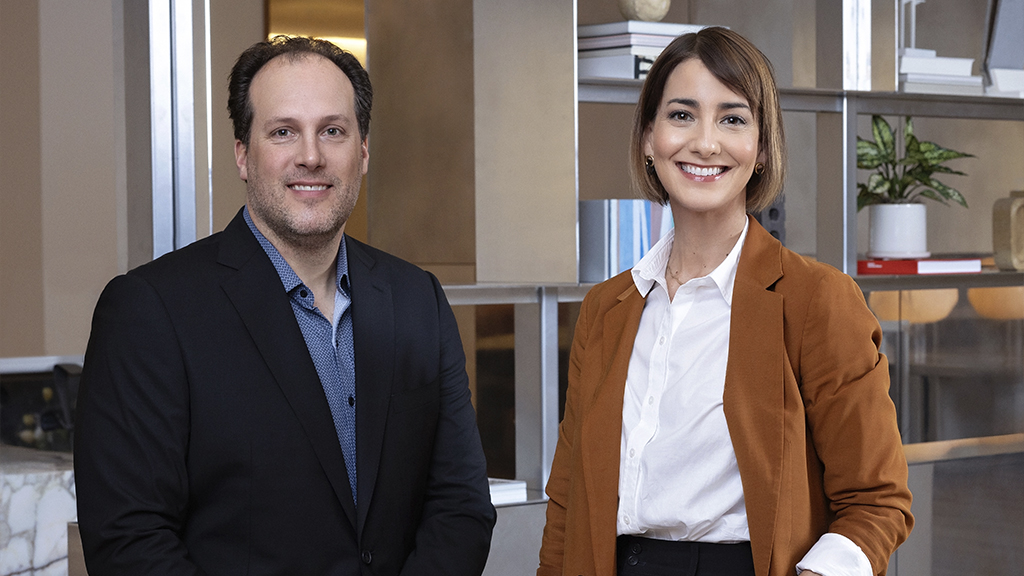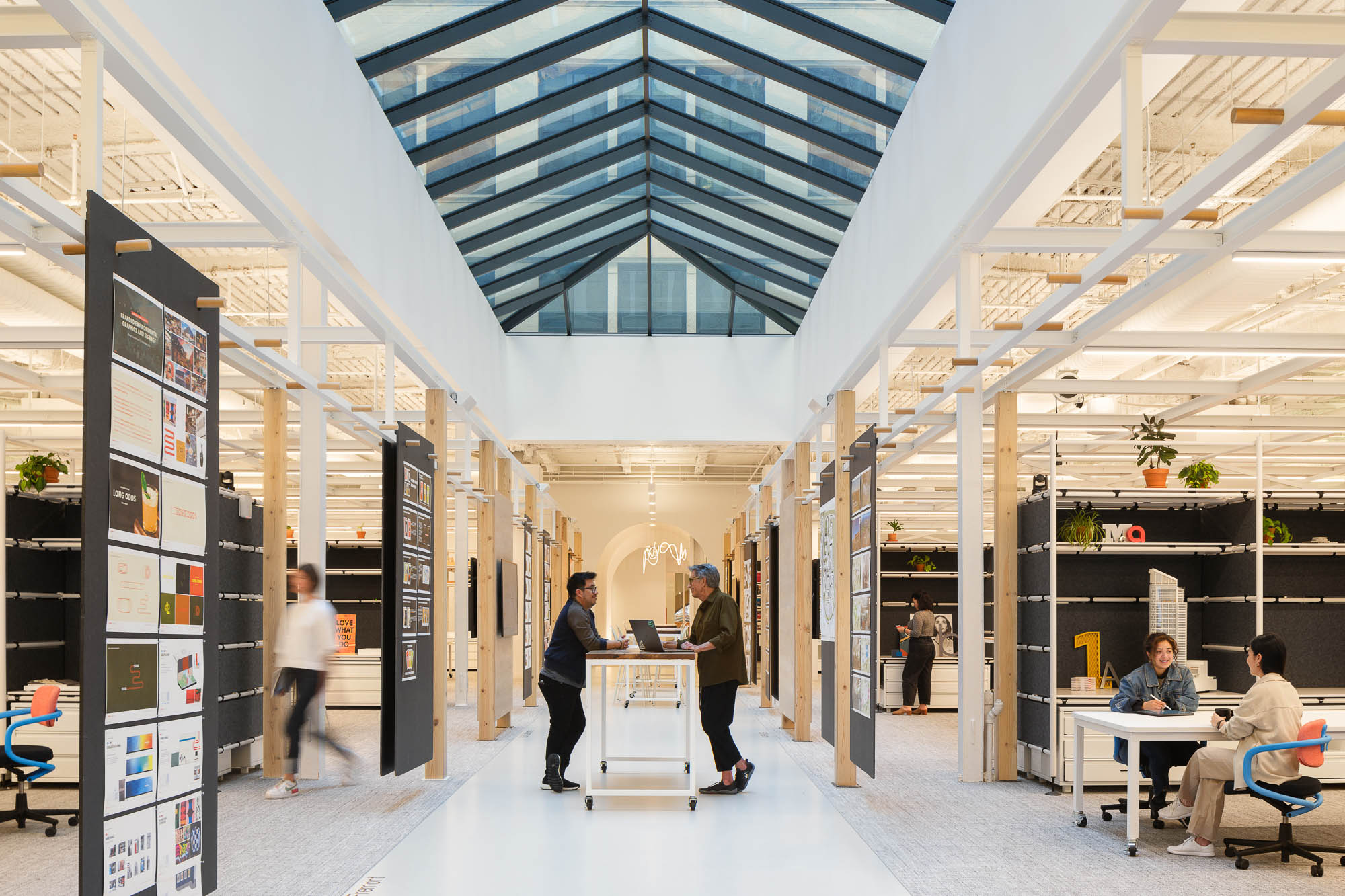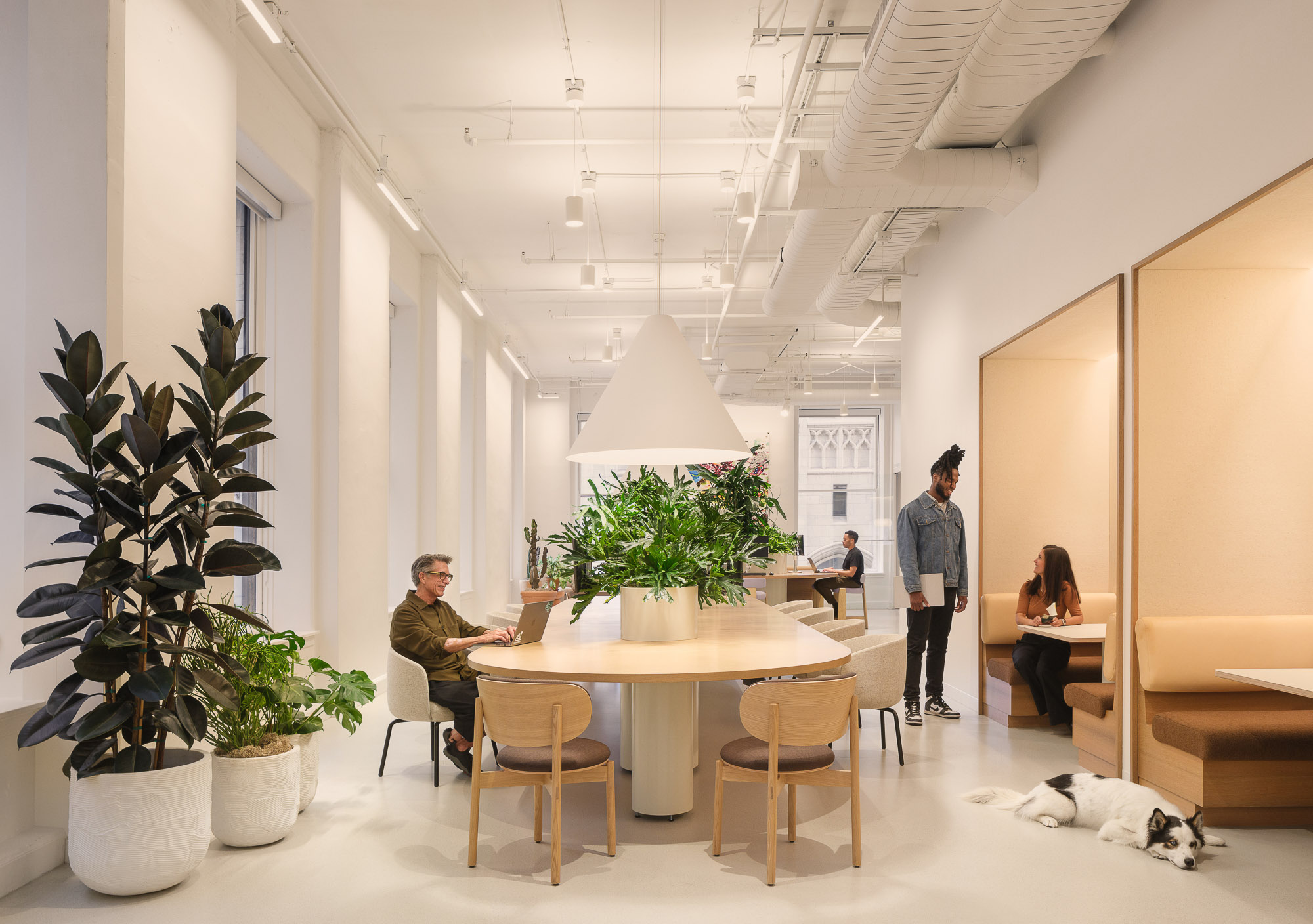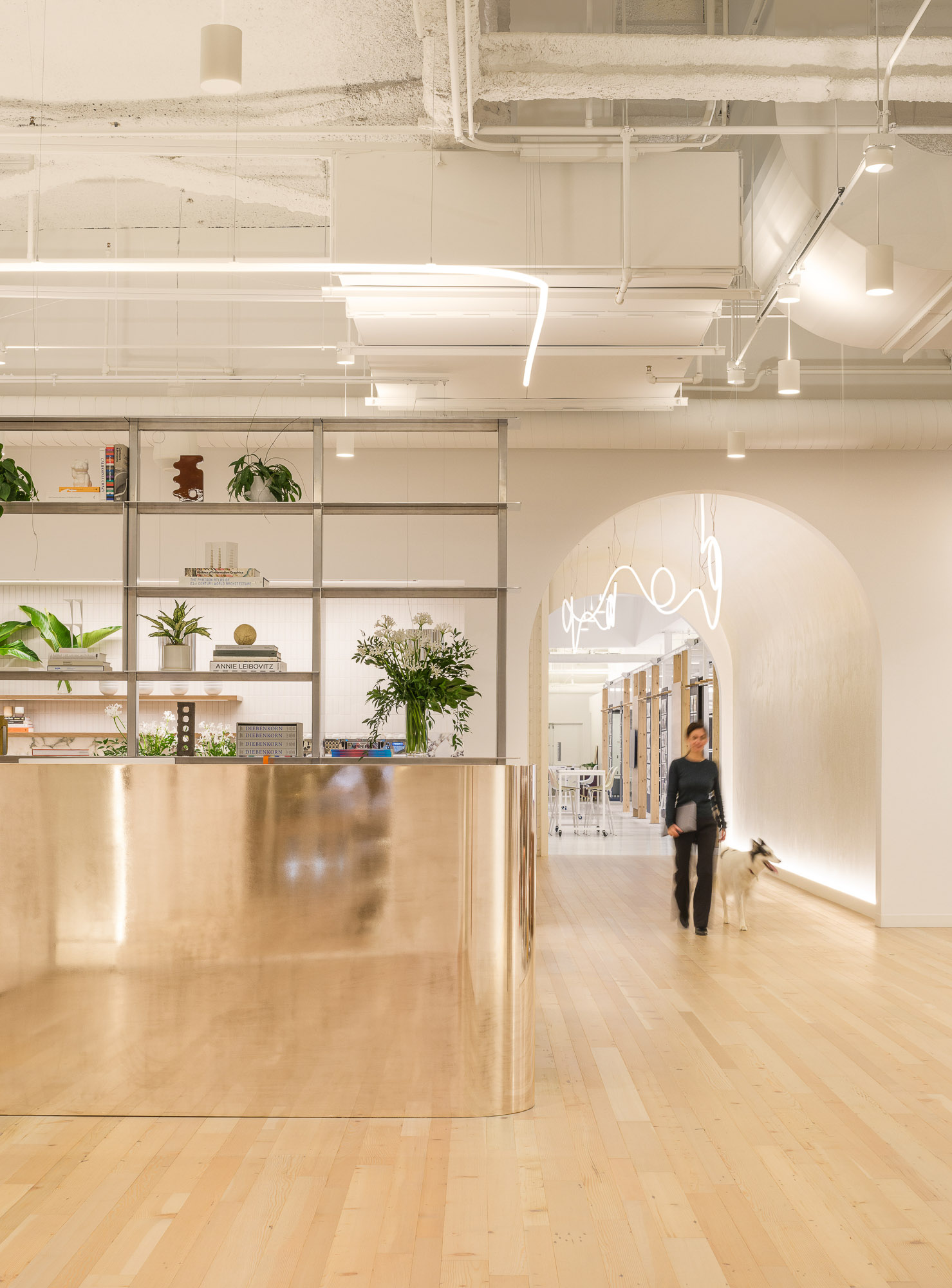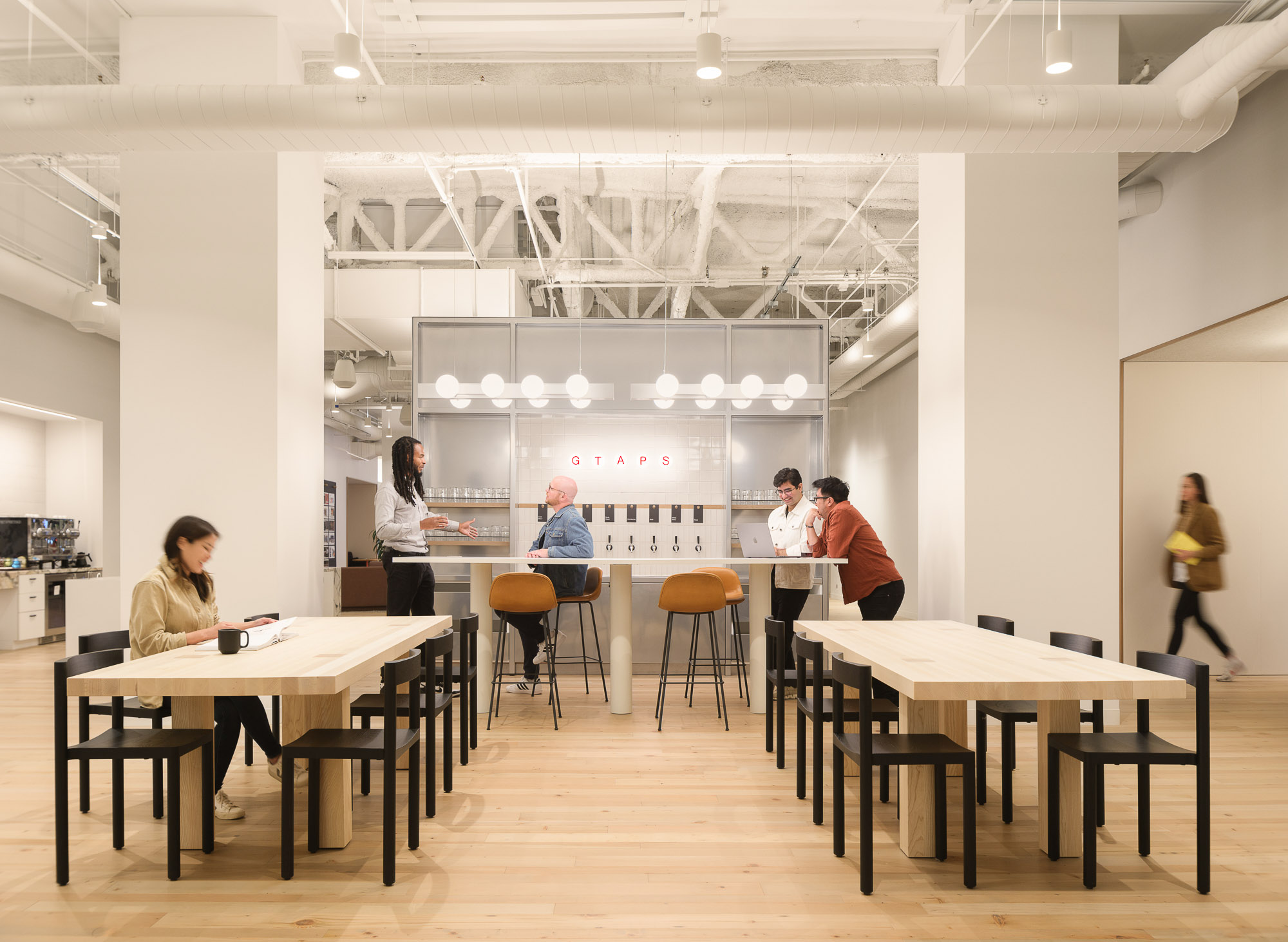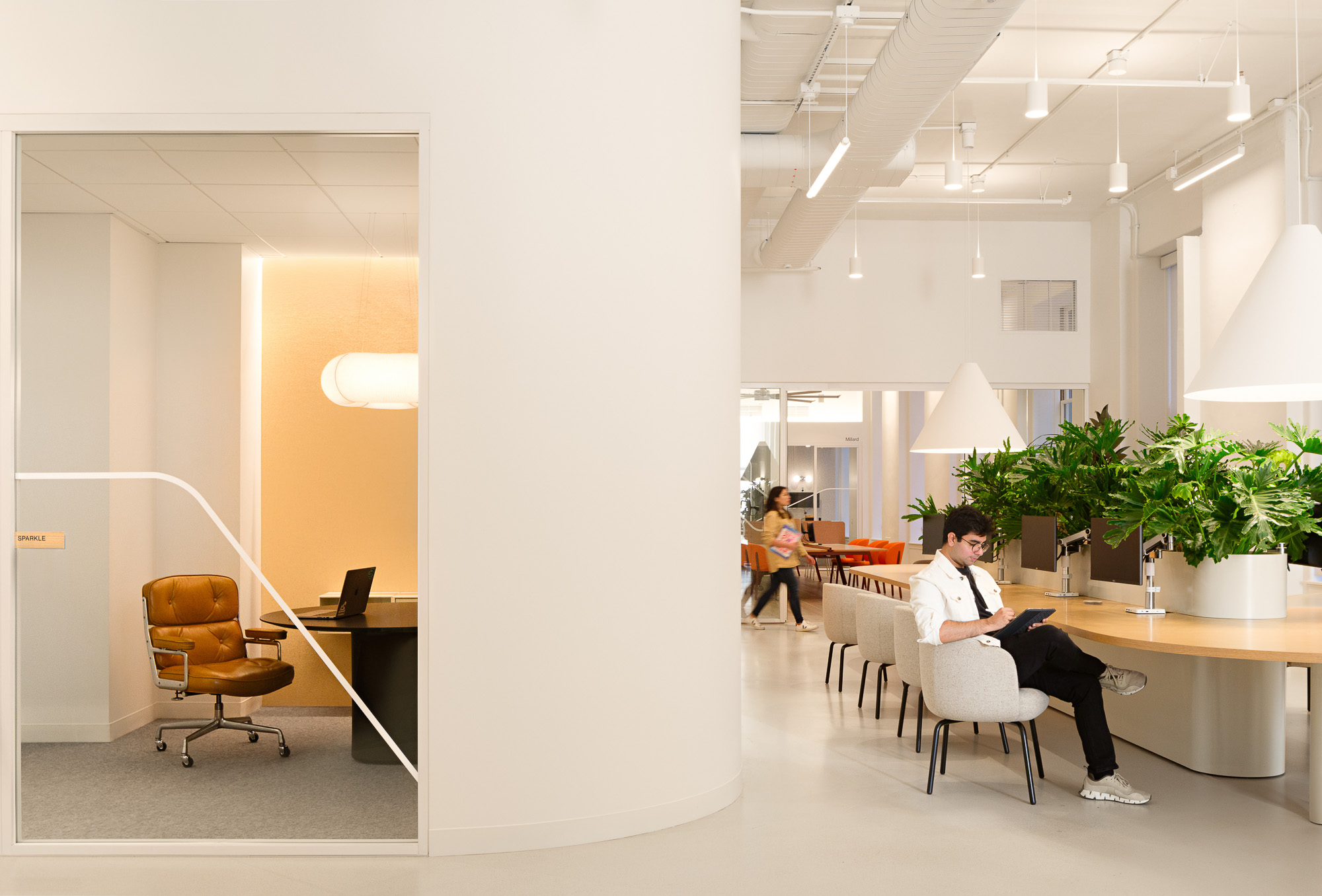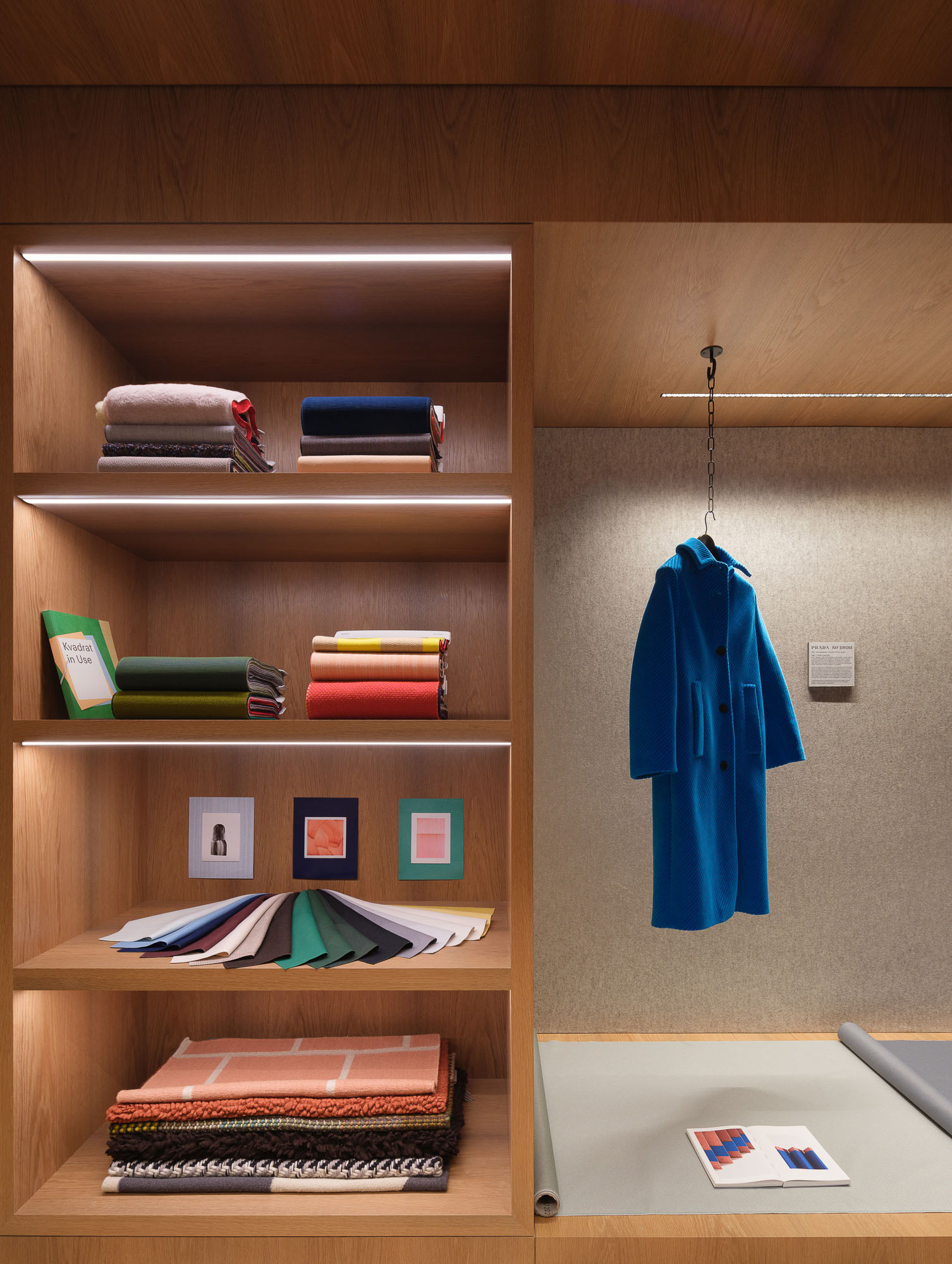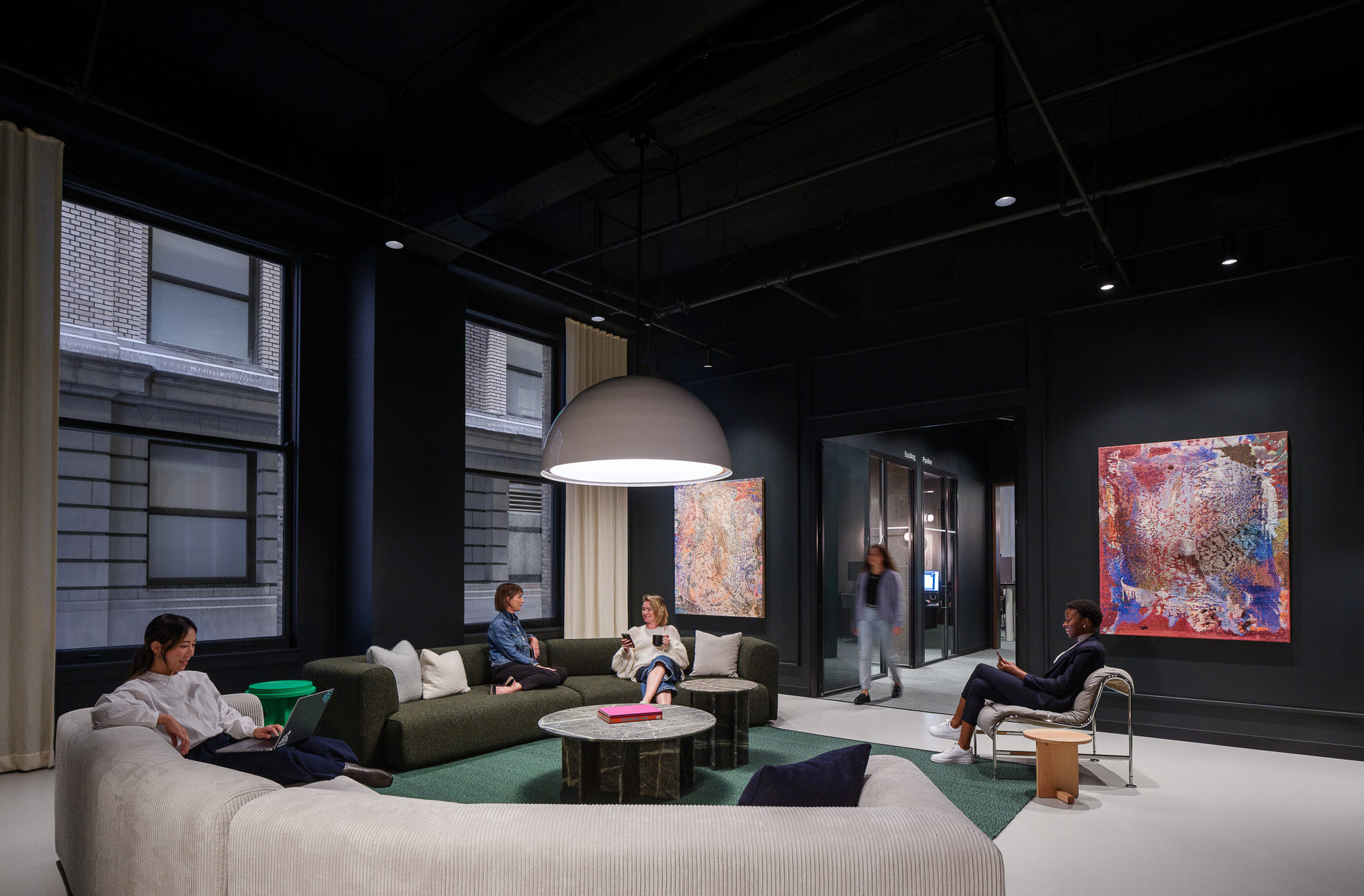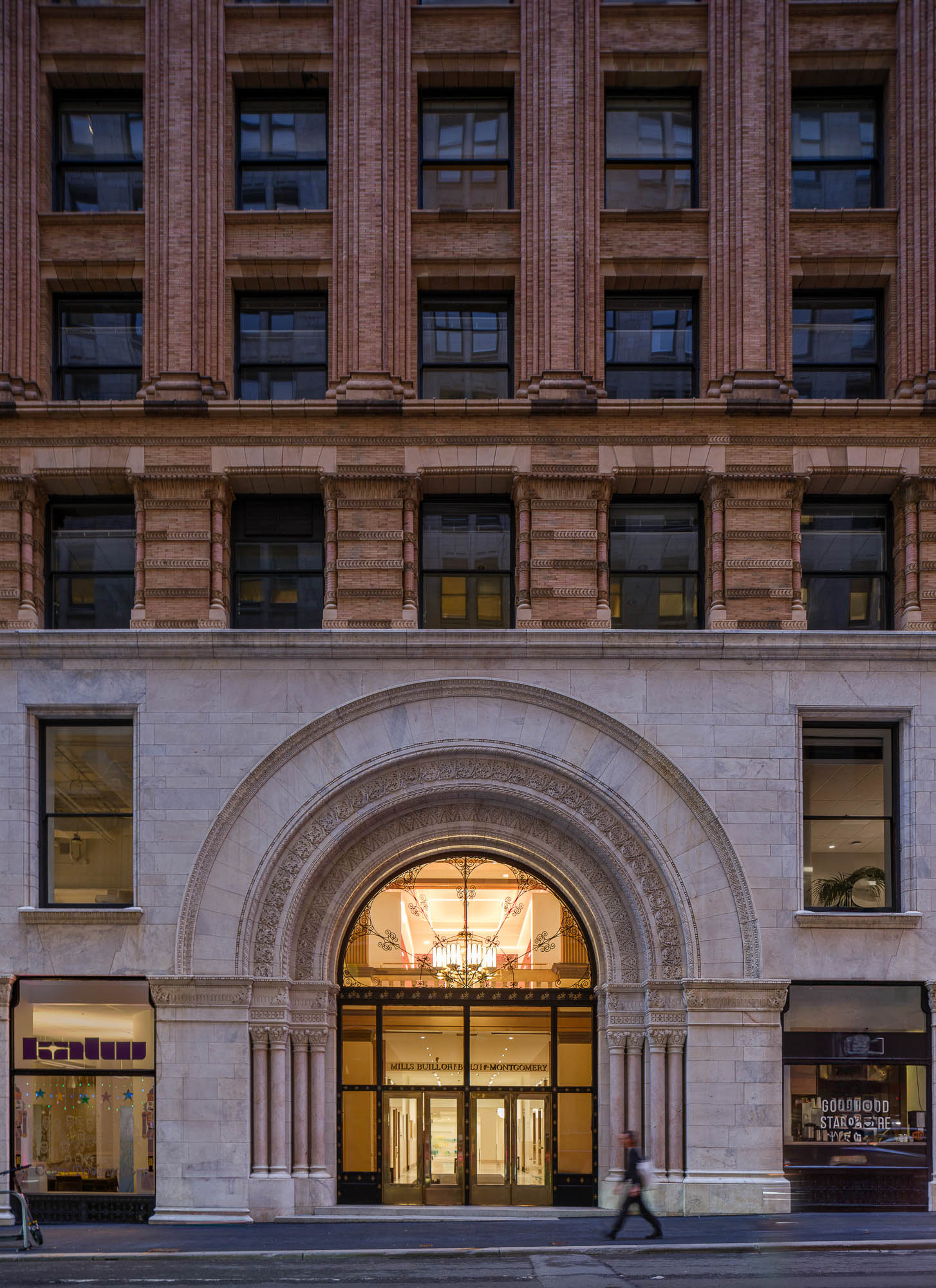- Building Retrofit Resulting in an Immediate 20% Reduction in Carbon Emissions
- First U.S. Gensler Office to Operate at Carbon Zero Energy
- Fitwel 3-Star Certification
- Designed for LEED Platinum
- 51% of Furniture and Equipment Is Reused
- 400 Different Work Points to Support New Ways of Working
- 100% Free Address Seating
- Architectural Record’s 2024 Record Interiors Award
- San Francisco Business Times’ 2024 Real Estate Deals of the Year Award
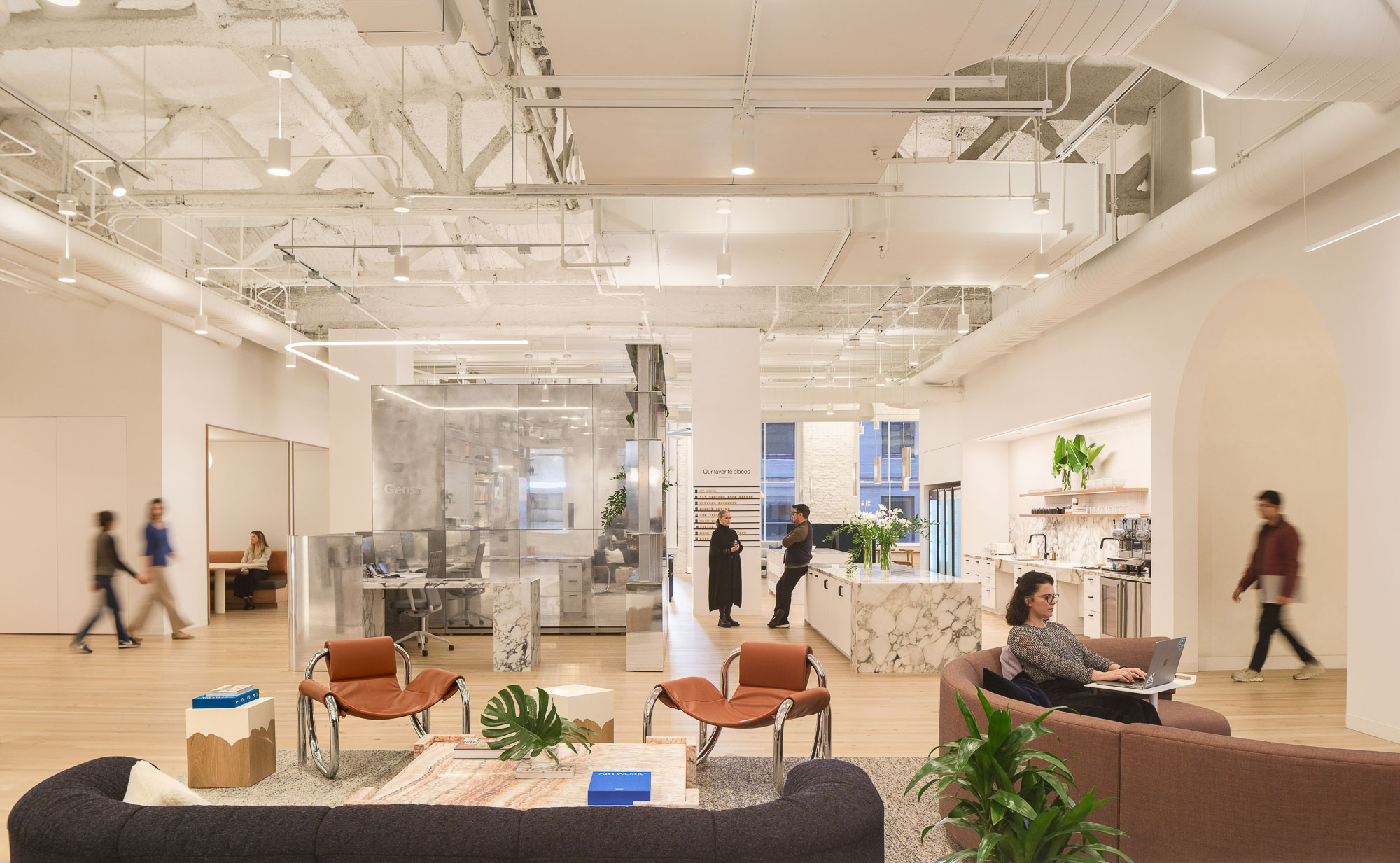
Cities like San Francisco are grappling with high office vacancy rates and a stagnated post-pandemic rebound. For companies that opt to maintain a physical presence in the world of hybrid and remote work, one-size-fits-all workplaces are no longer viable as employees seek out multi-layered experiences worthy of their commute. Seizing these challenges as opportunities, Gensler San Francisco recommitted to its founding city with a sustainable, experimental vision of the future workplace.
Gensler designed a prototype for the office of the future, while creating a compelling downtown destination for our people, our clients, and our community. The large, single-floor layout features nearly 400 different work points across four main activity and mood-based zones to accommodate team members’ unique needs, while production quality AV enables immersive and equitable hybrid meeting experiences. The workplace prioritizes sustainable materials and reuse and has been retrofitted to run on all-electric facilities.
Since the beginning of 2025, Gensler San Francisco has been operating at carbon zero energy, becoming the firm’s first U.S. office to achieve this level of performance. All-electric heating and cooling systems combined with 100 percent renewable energy, reduced the operational carbon footprint by more than 95%. An in-office attendance policy brings more than 200 employees downtown daily, with occupancy data showing a 37% increase from the prior San Francisco location.
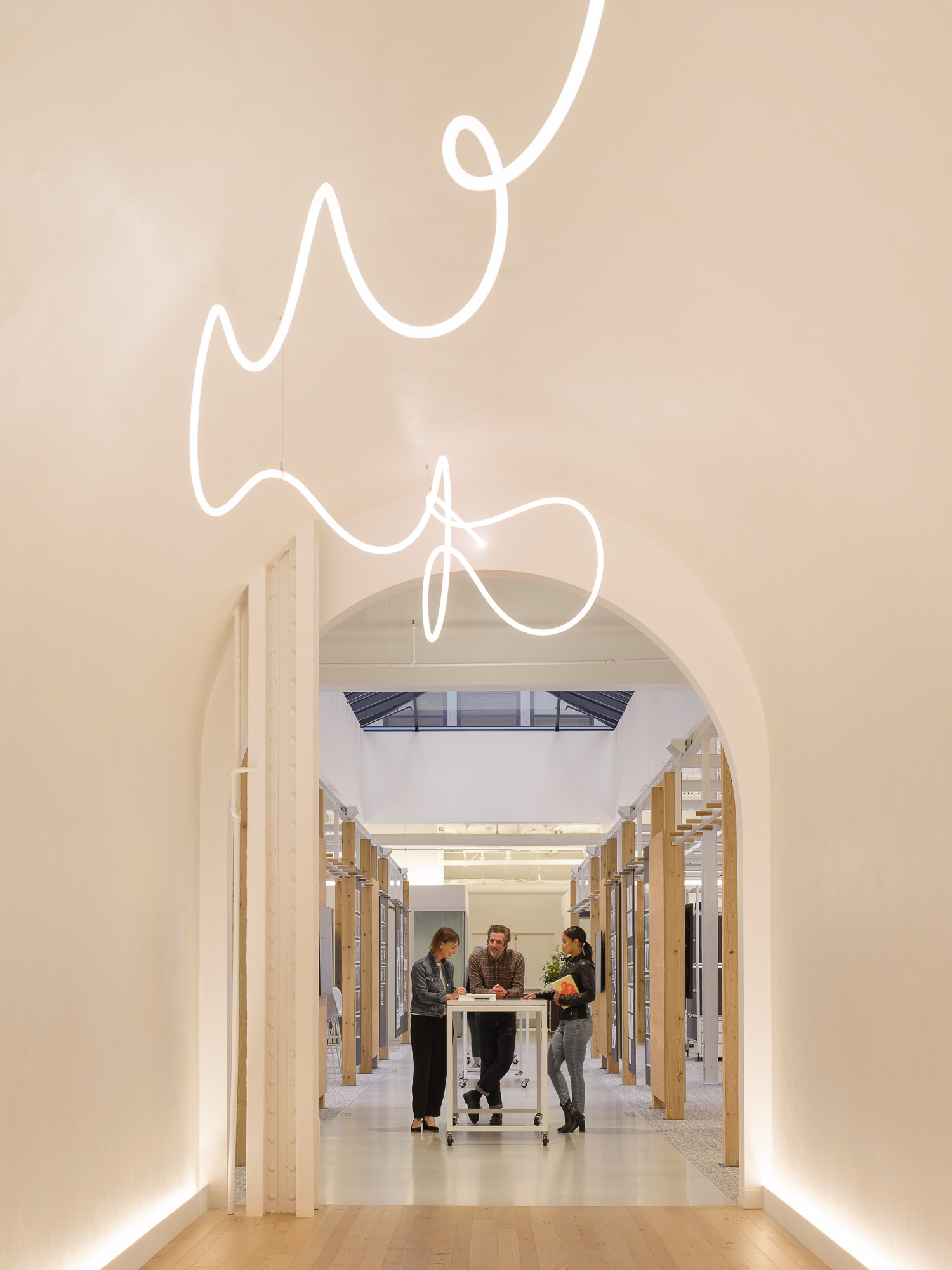
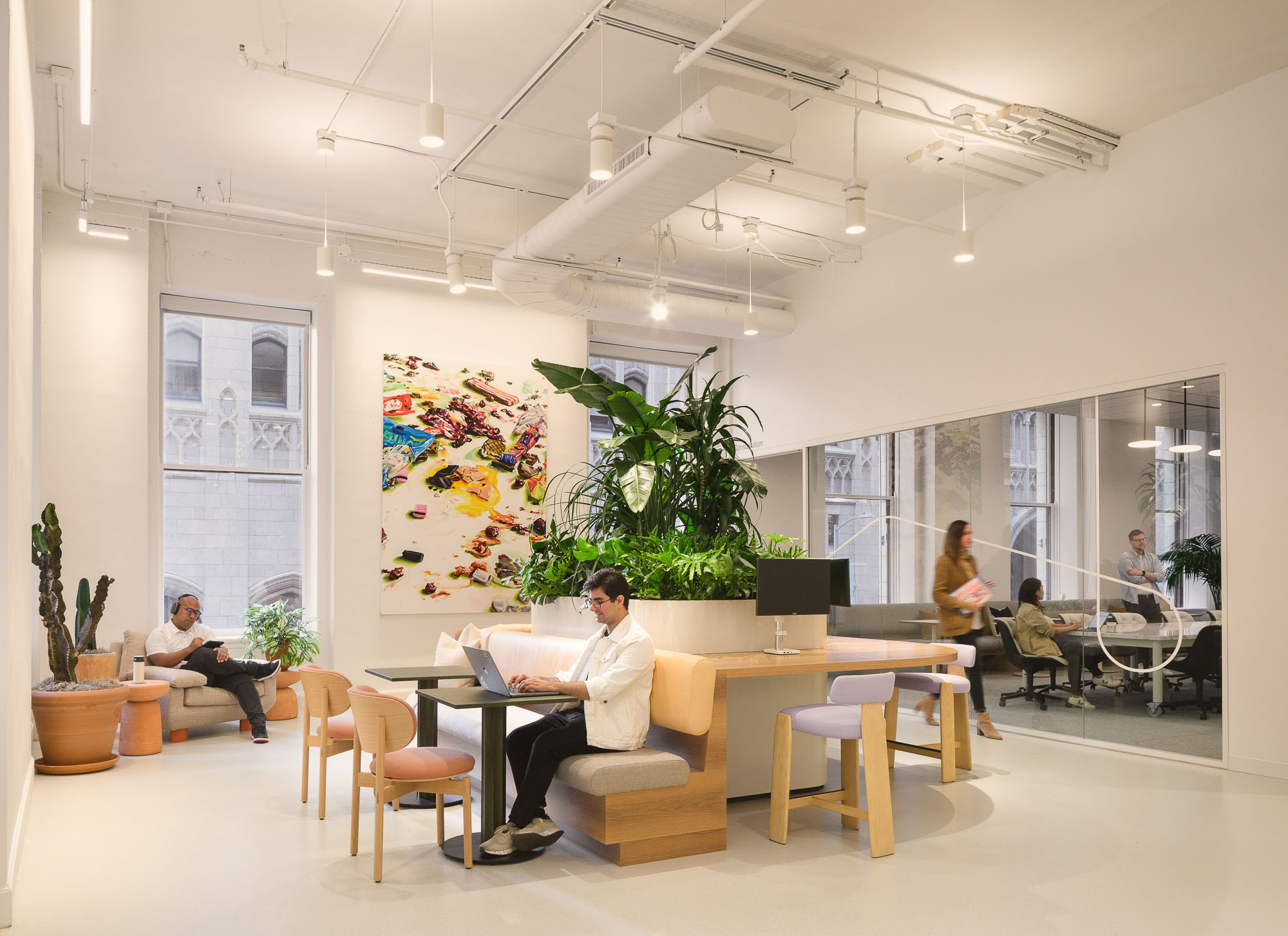
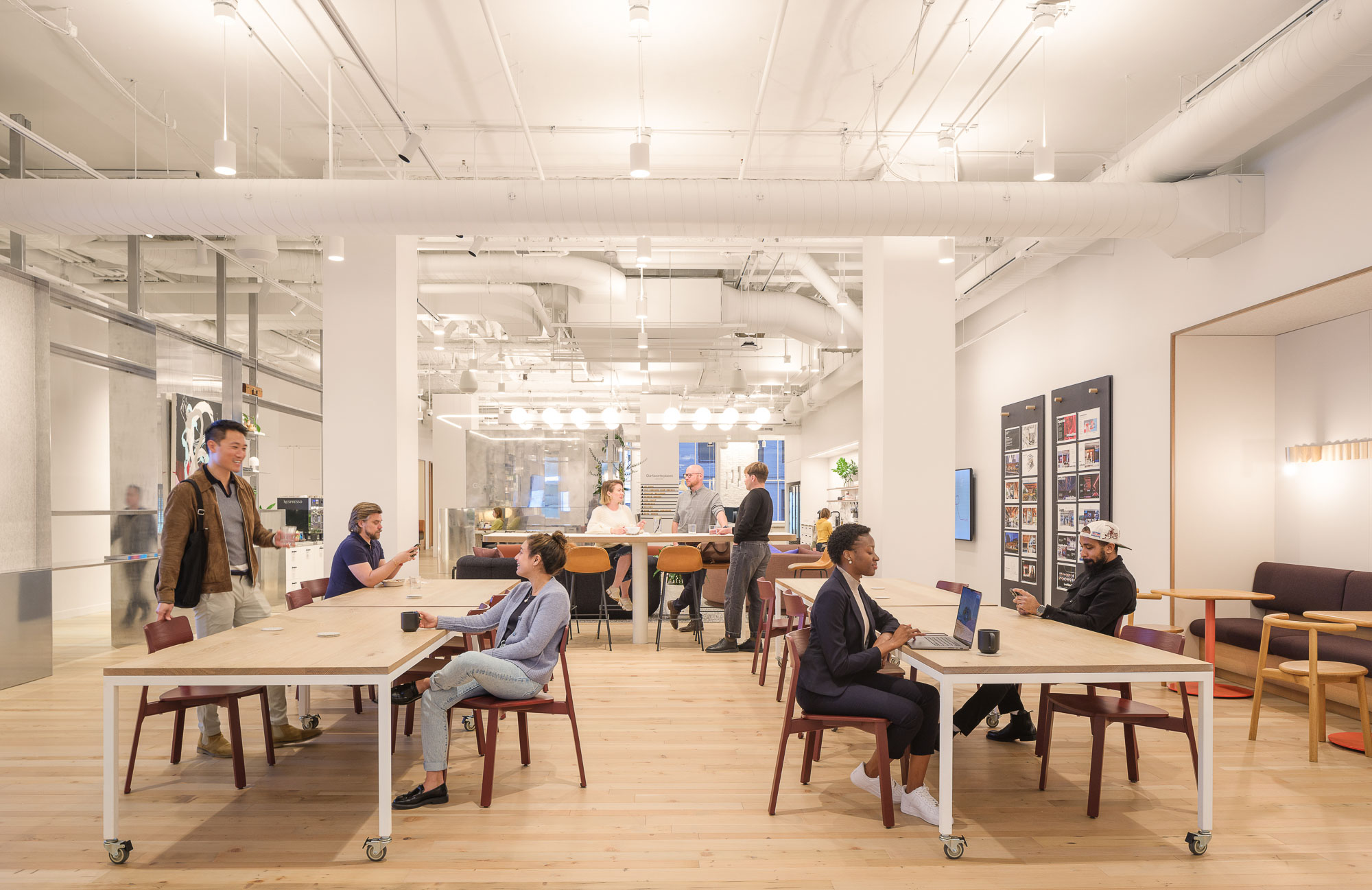
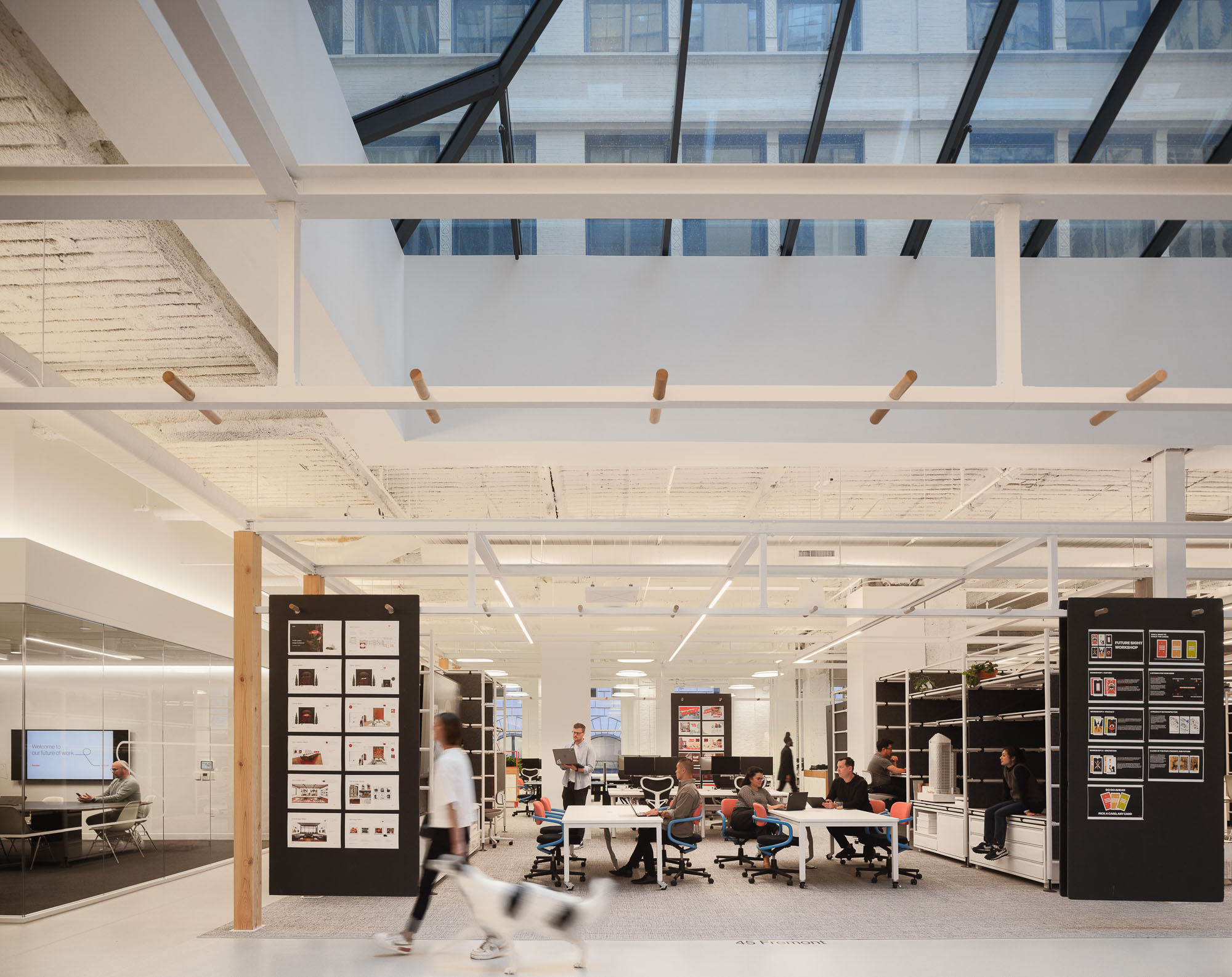
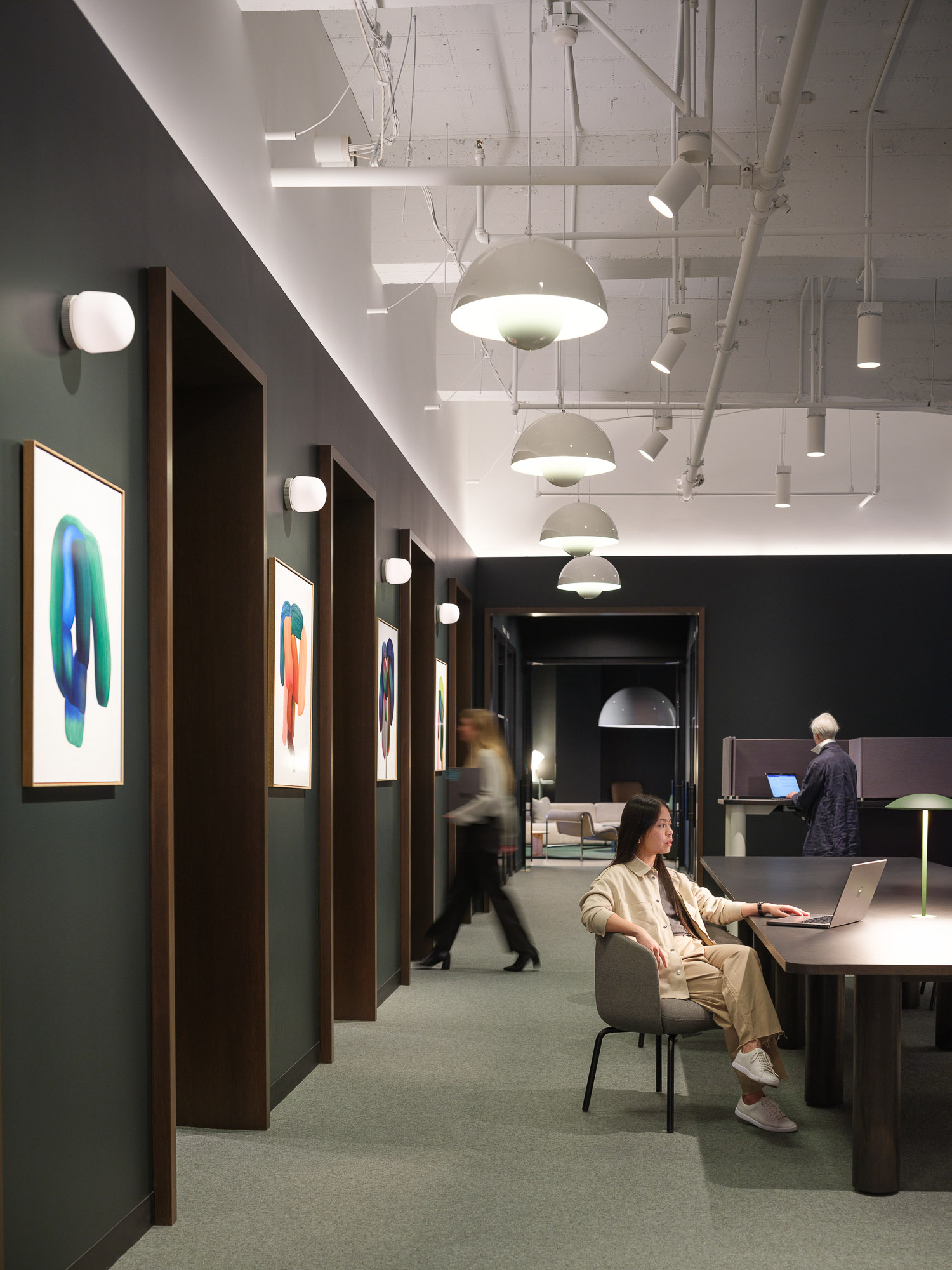
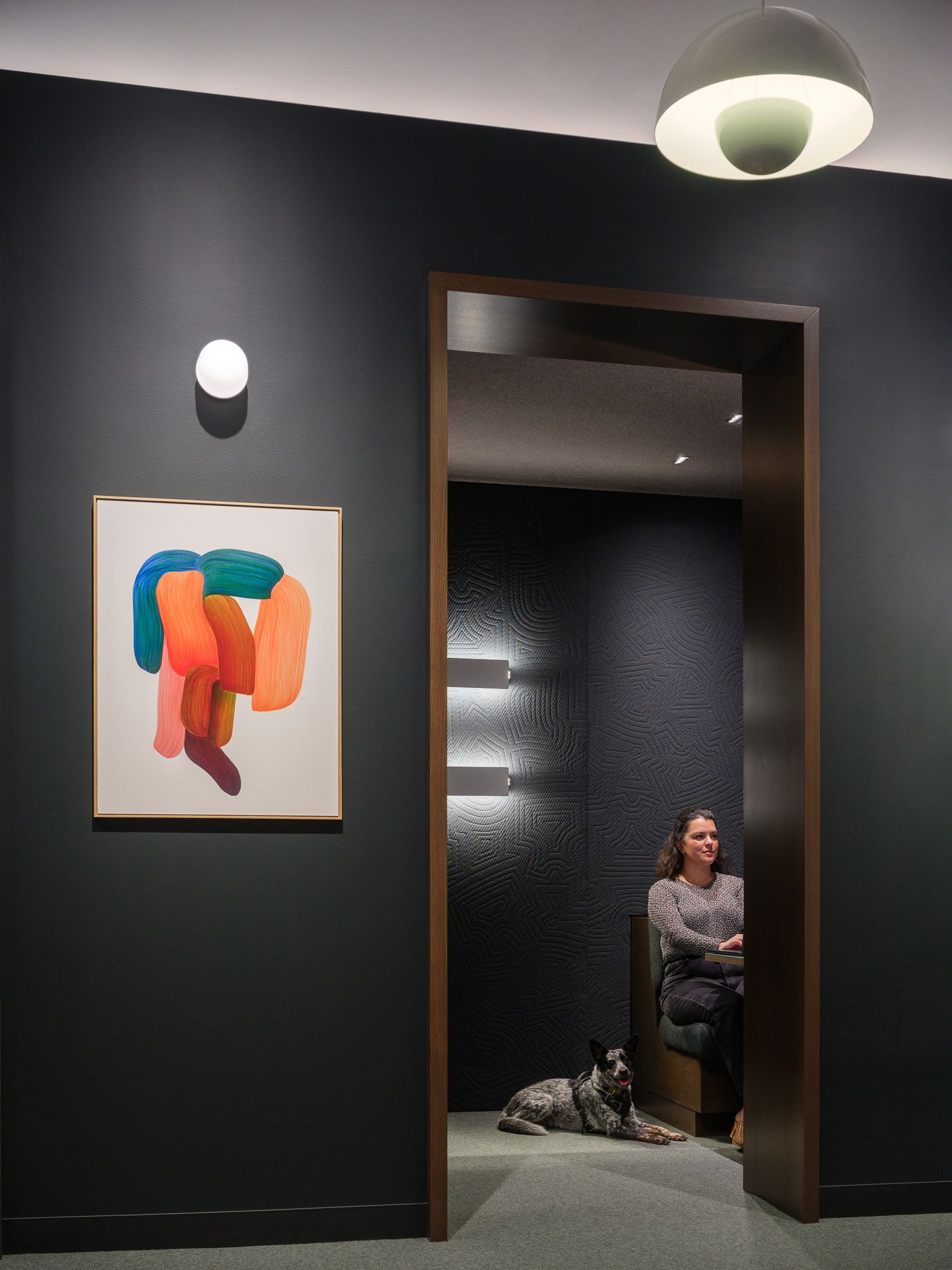
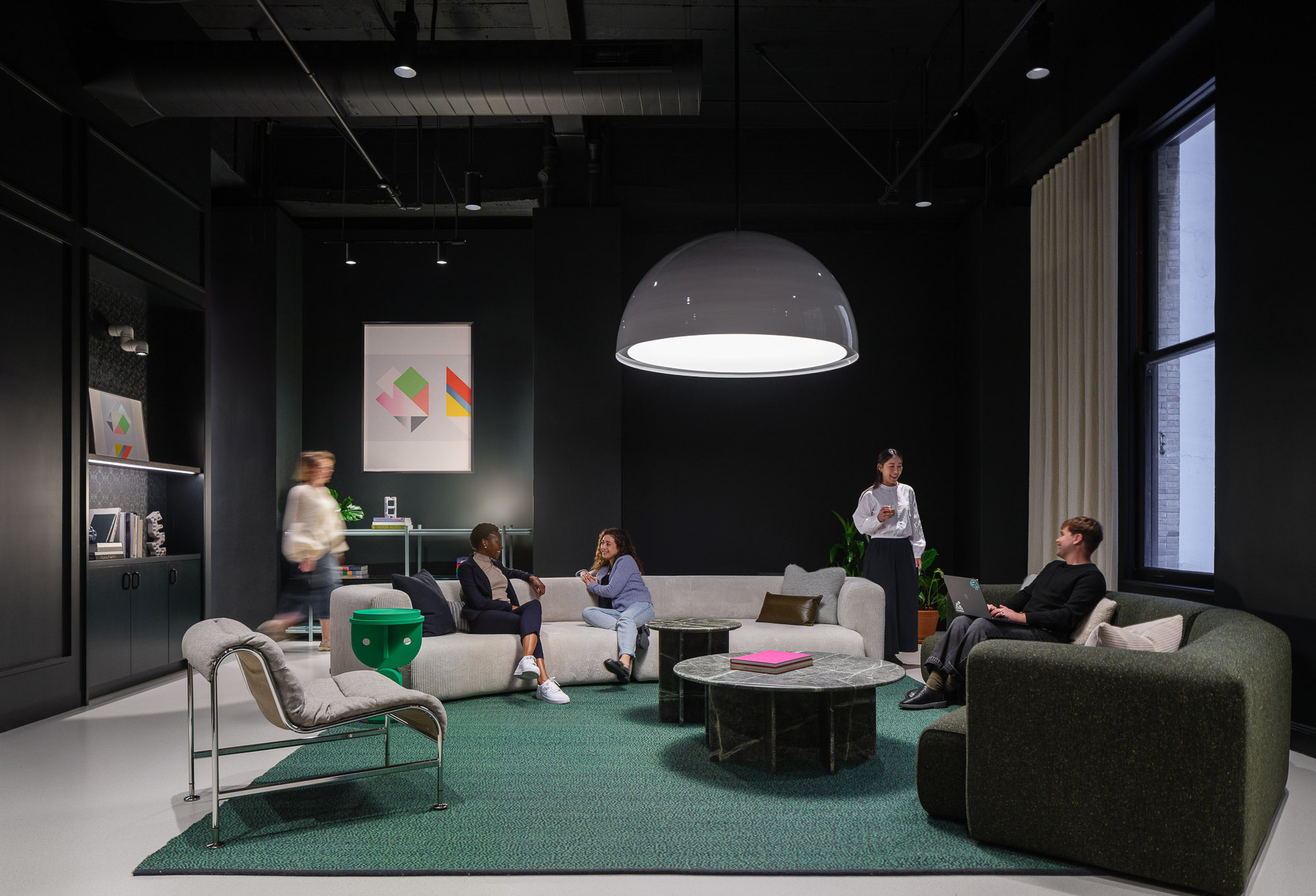
-
ByDesign TV toured Gensler San Francisco’s new office with Studio Director Amy Campbell. The office is designed to be a prototype for the future of work that “facilitates innovation, creative co-working and sustainable climate conscious innovation.”
-
Tomorrow interviewed DXD Leader Greg Gallimore about why neurodiverse design is key to modern office design. The article referenced Gensler’s San Francisco office, which offers workspaces to be “accommodating and engaging for all types of people.”
-
Architectural Record featured how Gensler San Francisco’s new office is a “balancing act between future and present.” Technical Director Luda Hoe and Design Director Kelly Dubisar explain how the space’s design supports a variety of work modes.
-
Business Insider highlighted 5 ways the workplace is changing, featuring Edelman’s London office and Gensler’s new San Francisco office. “This idea of the overly dense, one-size-fits-all approach is gone,” noted Gensler Global Co-Chair Diane Hoskins.
-
WorkLife gave readers an inside look at Gensler’s “office of the future” in San Francisco, where the firm’s architects and designers “meticulously planned the workspaces to meet the productivity needs of a modern, hybrid workforce.”
-
San Francisco Chronicle spotlighted Gensler’s move to its new office, which represents the city’s resurgence, the future of work, and a focus on carbon reduction. Randy Howder and Hao Ko shared how the office has helped boost productivity and moods.
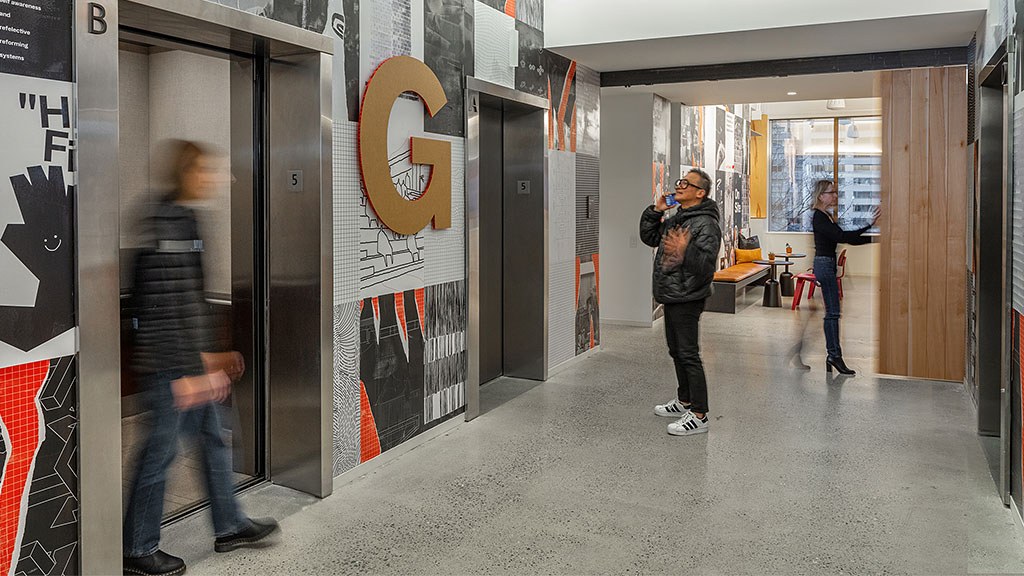
Gensler Seattle Office Redesign
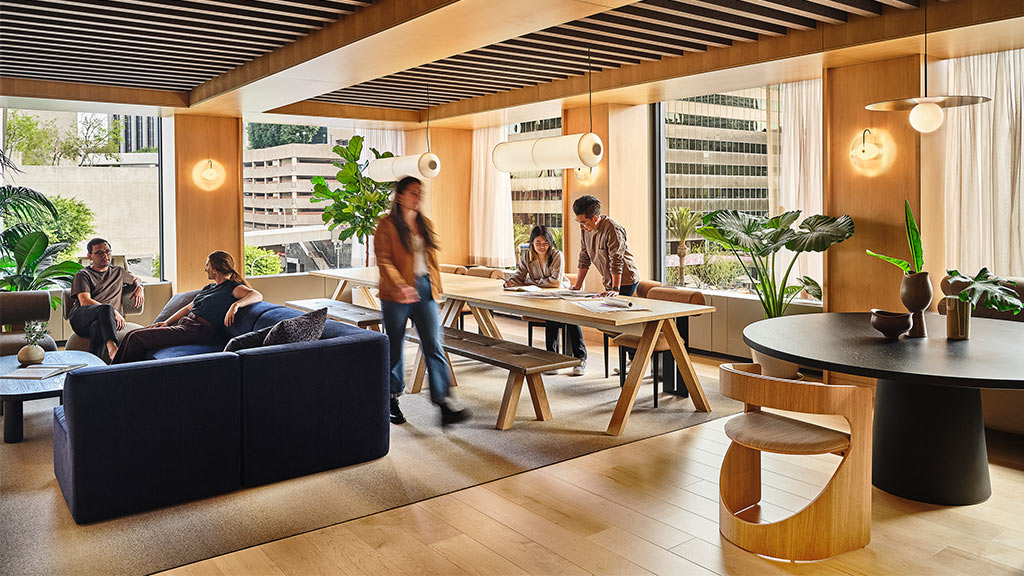
Gensler Los Angeles Transformation
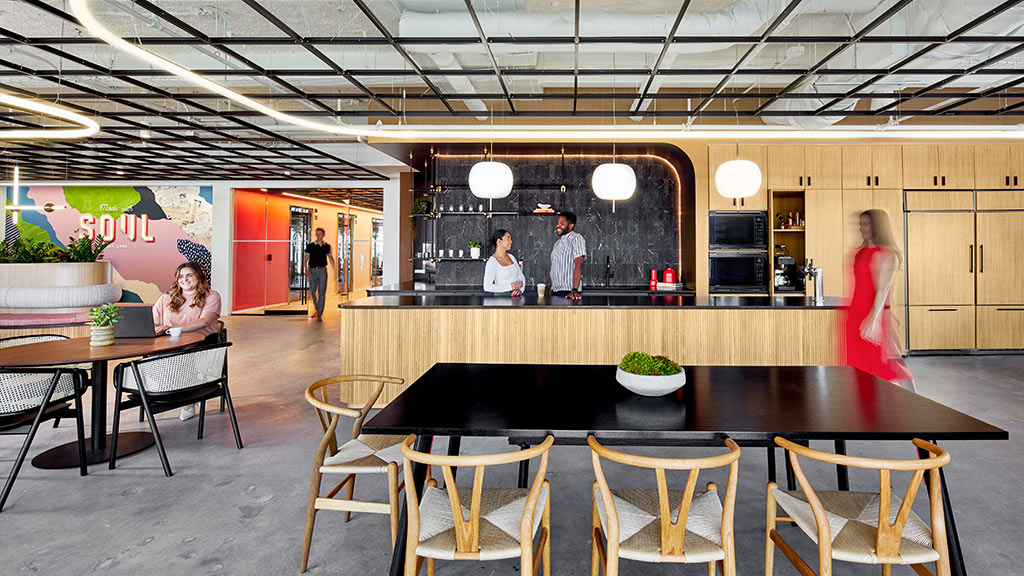
Gensler Atlanta
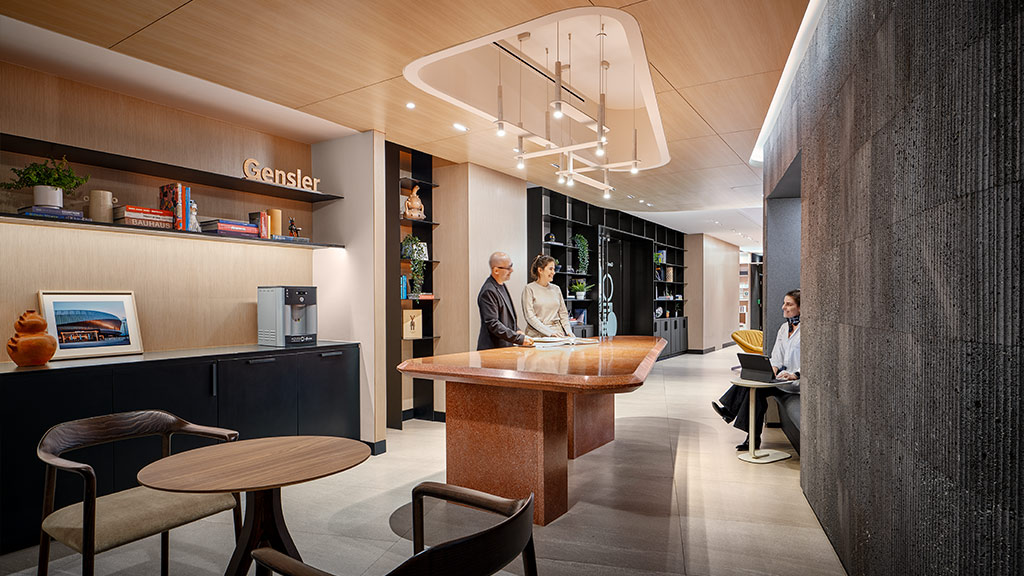
Gensler Mexico City
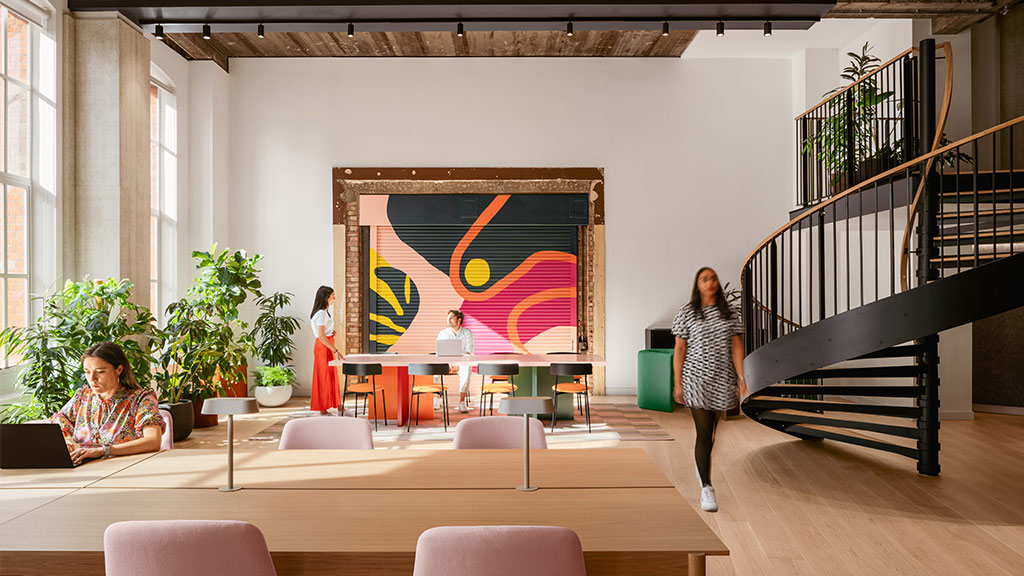
Francis House, London HQ
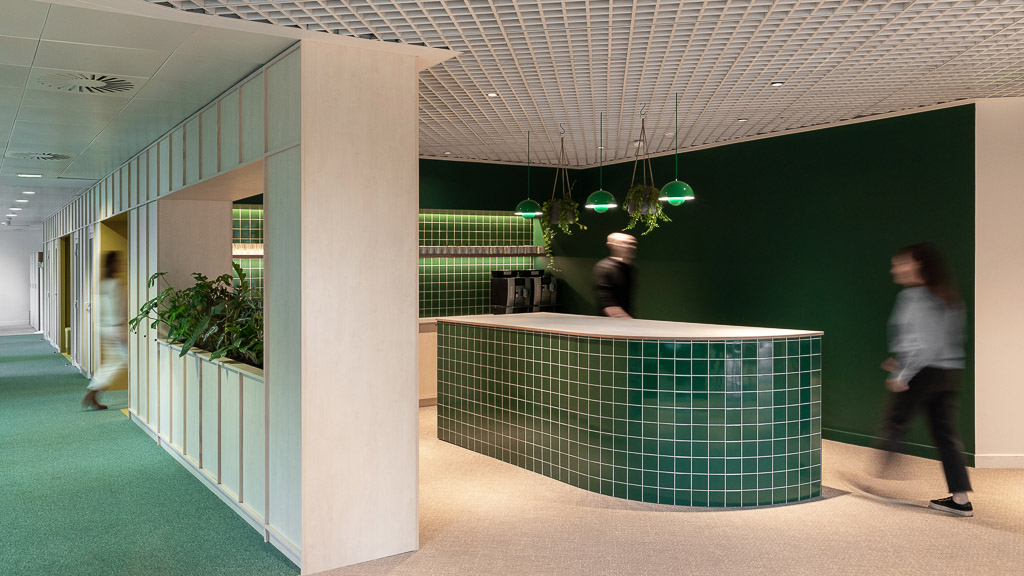
Korn Ferry Paris
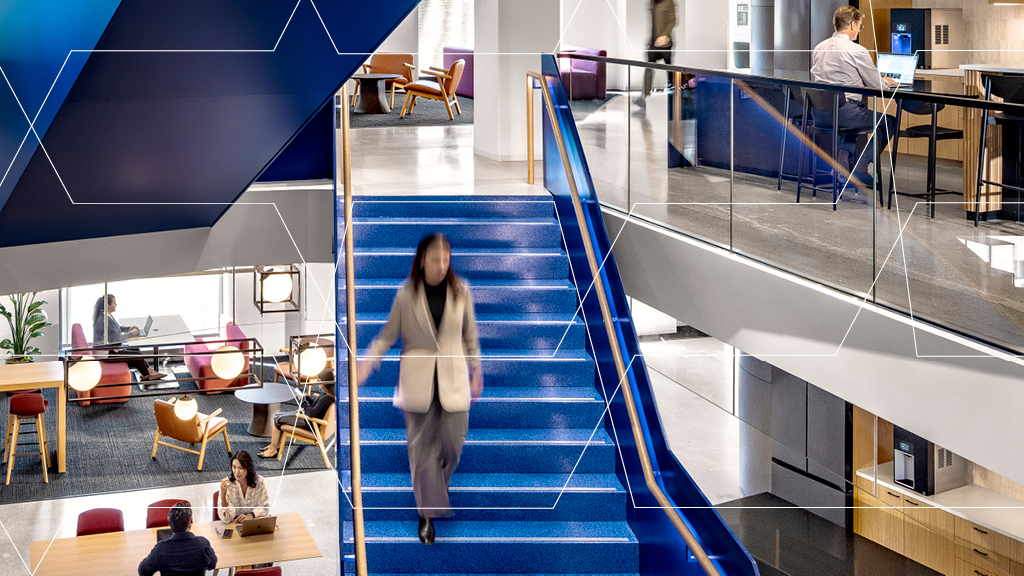
Global Workplace Survey 2025
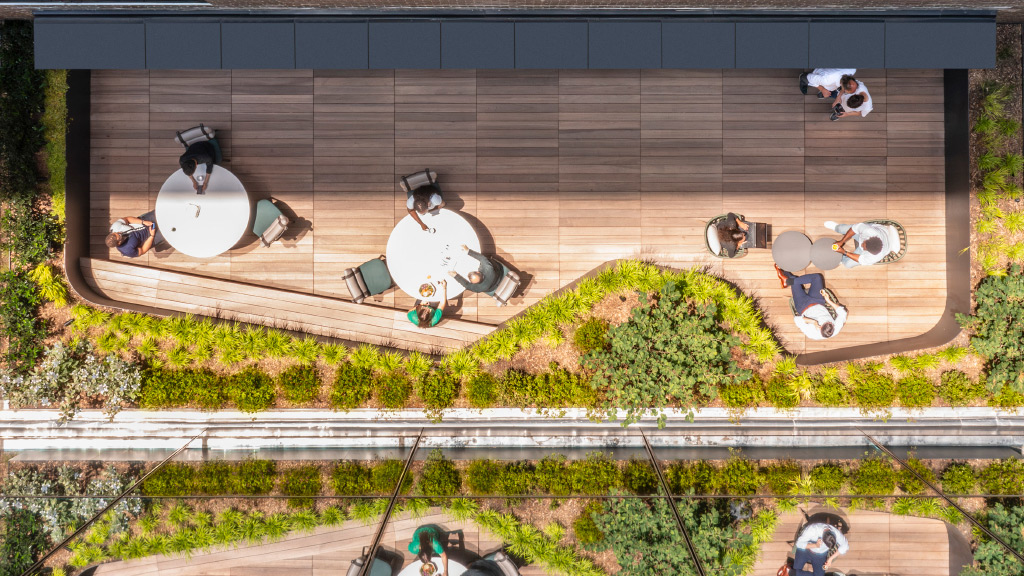
Resilience by Design
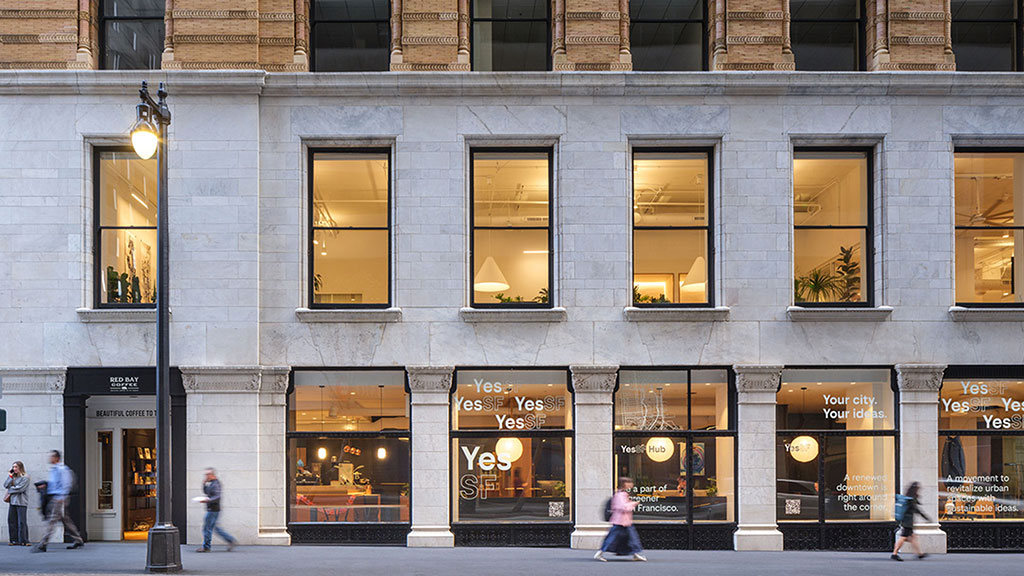
Urban Design’s Renaissance: How San Francisco Is Leading the Way
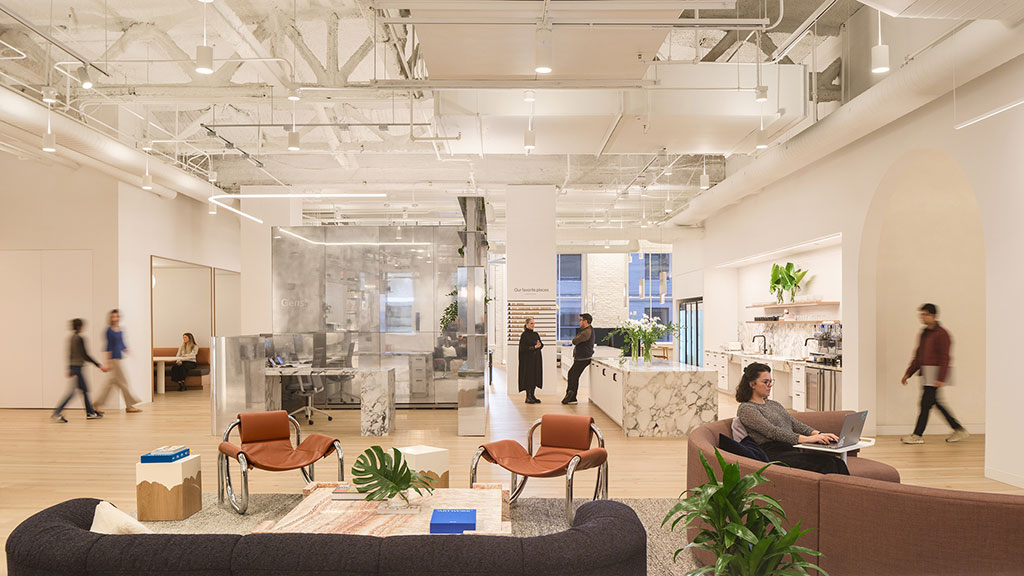
Workplace as a Service: A Thought Experiment in Office Evolution
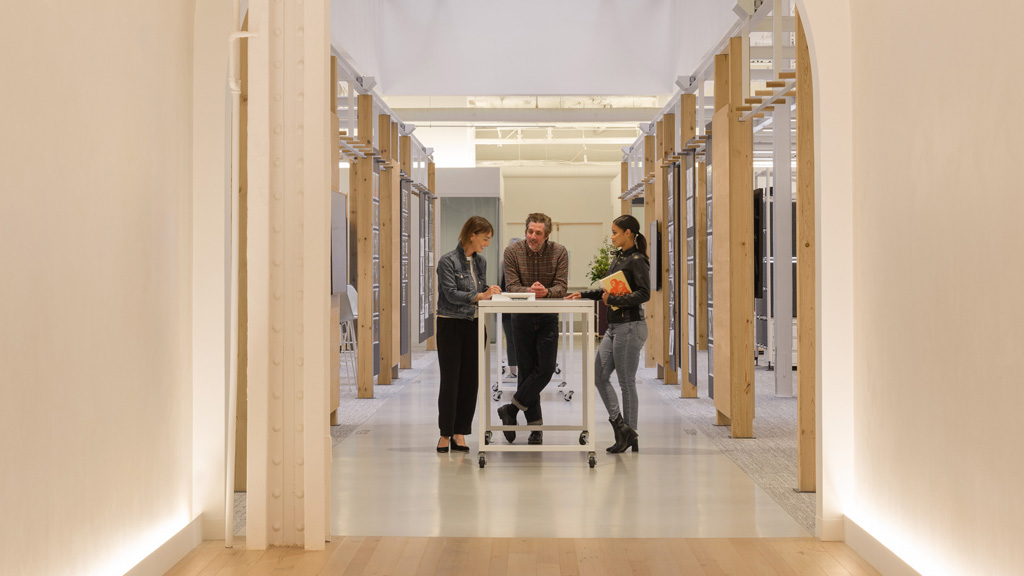
Redefining the Workplace for a New Era of Productivity and Engagement
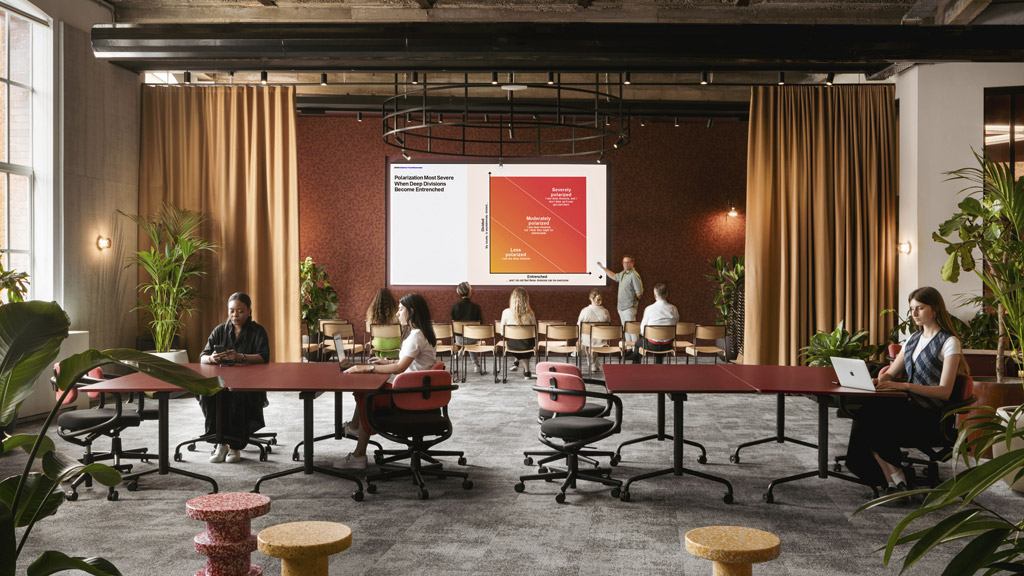
10 Workplace Trends for 2025: What’s In and What’s Out?
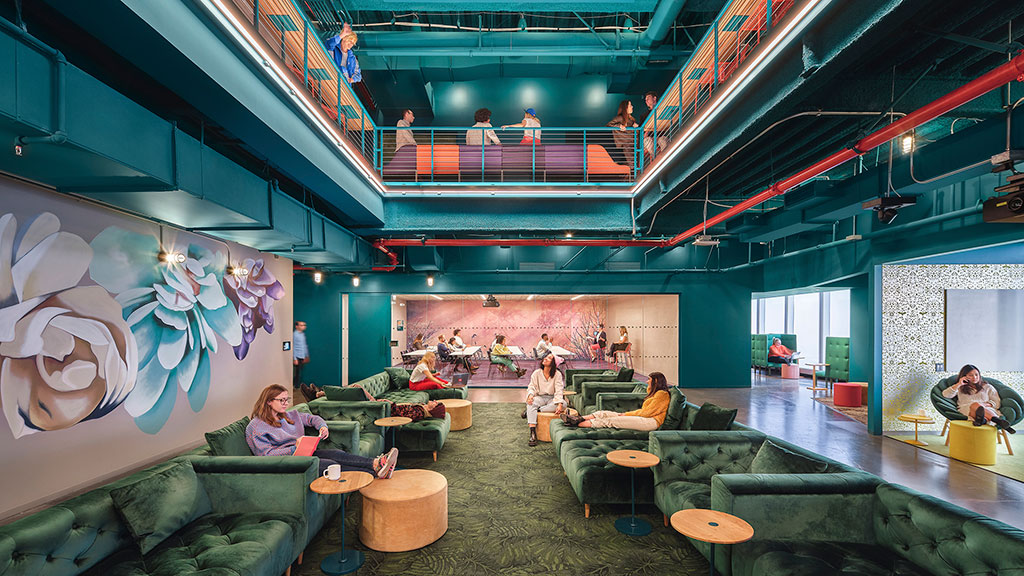
Designing Workplaces to Strengthen Connection and Combat Loneliness
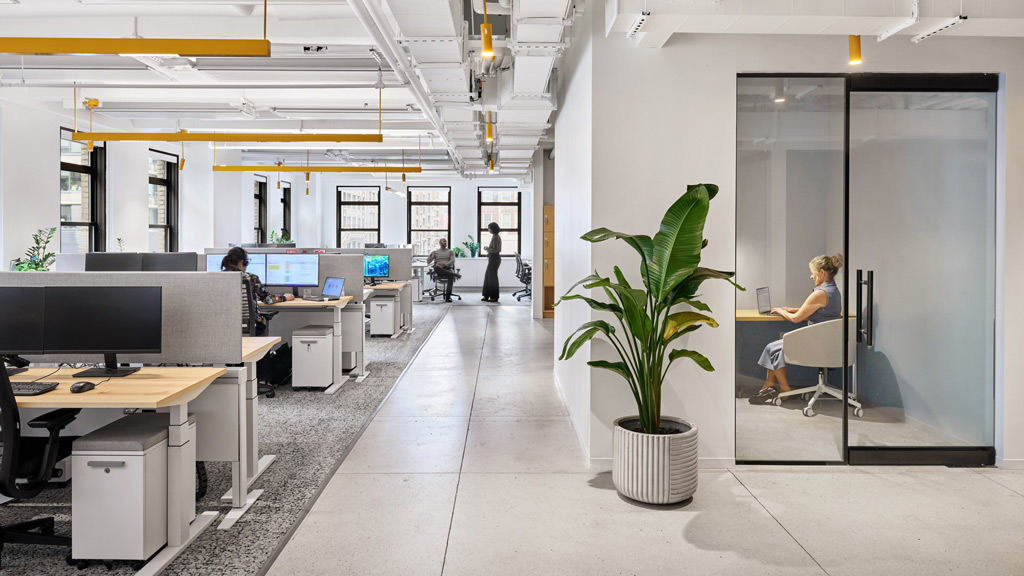
Creating Inclusive Spaces by Designing for Neurodiversity
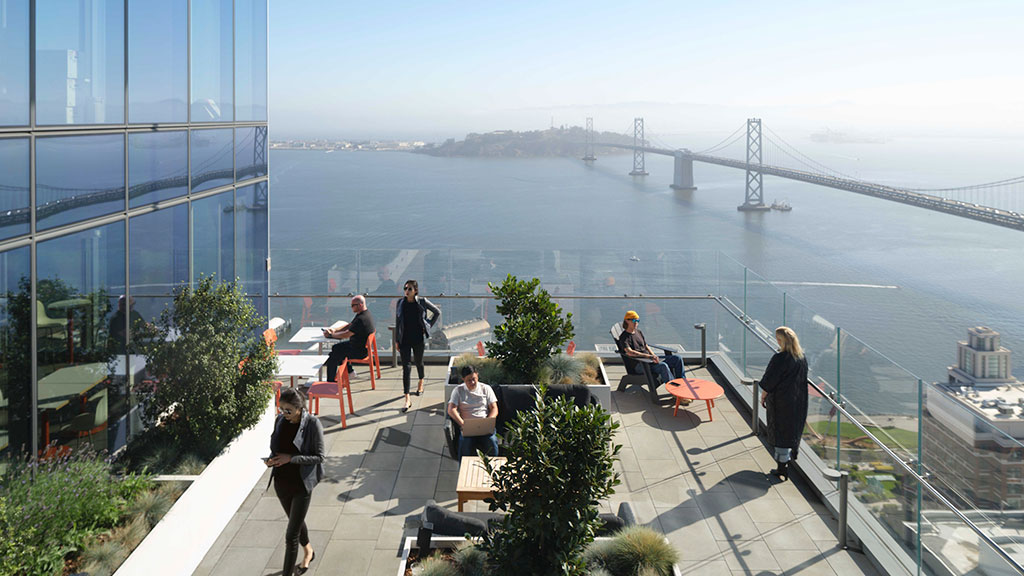
San Francisco Is on the Brink of a Revival, Fueled by AI, Innovators, and Investors
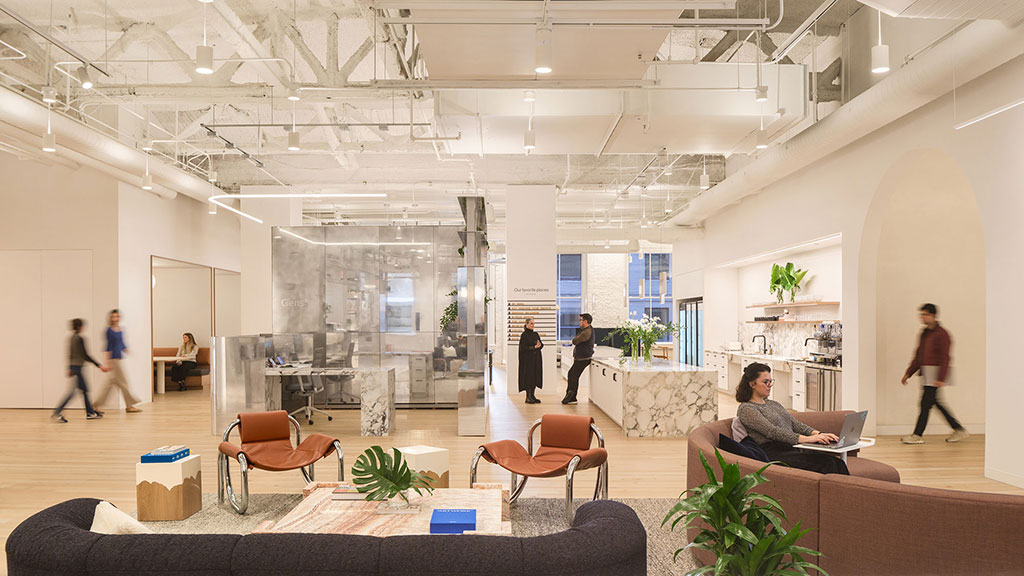
Want a High-Performing Workplace? Here’s What Matters Most.
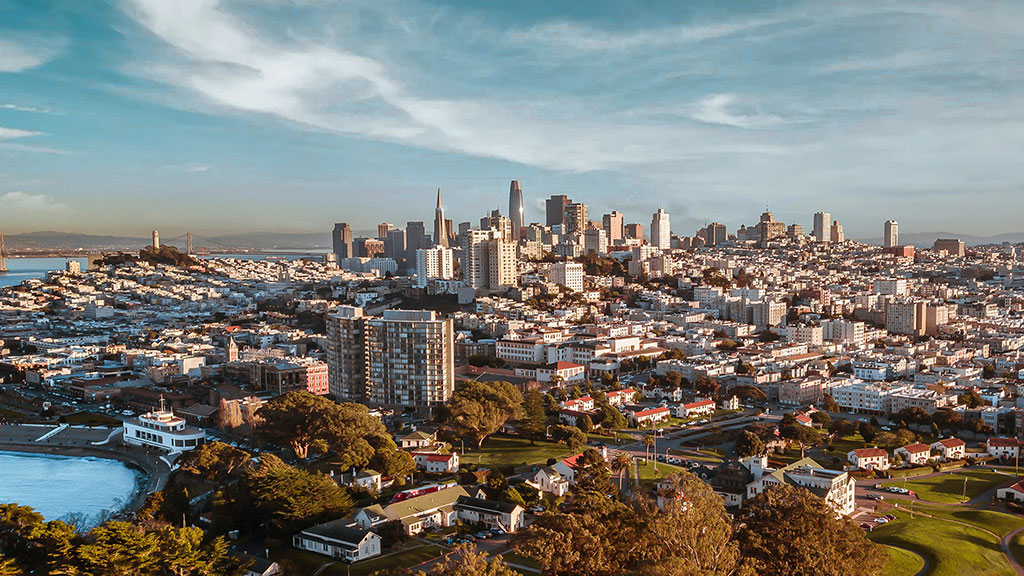
What Can San Francisco Learn From Successful Building Conversion Programs in Other Cities?
